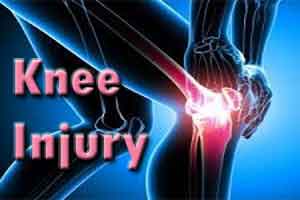- Home
- Editorial
- News
- Practice Guidelines
- Anesthesiology Guidelines
- Cancer Guidelines
- Cardiac Sciences Guidelines
- Critical Care Guidelines
- Dentistry Guidelines
- Dermatology Guidelines
- Diabetes and Endo Guidelines
- Diagnostics Guidelines
- ENT Guidelines
- Featured Practice Guidelines
- Gastroenterology Guidelines
- Geriatrics Guidelines
- Medicine Guidelines
- Nephrology Guidelines
- Neurosciences Guidelines
- Obs and Gynae Guidelines
- Ophthalmology Guidelines
- Orthopaedics Guidelines
- Paediatrics Guidelines
- Psychiatry Guidelines
- Pulmonology Guidelines
- Radiology Guidelines
- Surgery Guidelines
- Urology Guidelines
Exercise as effective as surgery for middle aged patients with knee damage

London : Exercise therapy is as effective as surgery for middle aged patients with a common type of knee injury known as meniscal tear (damage to the rubbery discs that cushion the knee joint), finds a study in The BMJ this week.
The researchers suggest that supervised exercise therapy should be considered as a treatment option for middle aged patients with this type of knee damage.
Every year, an estimated two million people worldwide undergo knee arthroscopy (keyhole surgery to relieve pain and improve movement) at a cost of several billion US dollars. Yet current evidence suggests that arthroscopic knee surgery offers little benefit for most patients.
So researchers based in Denmark and Norway carried out a randomised controlled trial to compare exercise therapy alone with arthroscopic surgery alone in middle aged patients with degenerative meniscal tears.
A randomised controlled trial is one of the best ways for determining whether an intervention actually has the desired effect.
They identified 140 adults (average age 50 years) with degenerative meniscal tears, verified by MRI scan, at two public hospitals and two physiotherapy clinics in Norway. Almost all (96%) participants had no definitive x-ray evidence of osteoarthritis.
Half of the patients received a supervised exercise programme over 12 weeks (2-3 sessions each week) and half received arthroscopic surgery followed by simple daily exercises to perform at home.
Thigh muscle strength was assessed at three months and patient reported knee function was recorded at two years.
No clinically relevant difference was found between the two groups for outcomes such as pain, function in sport and recreation, and knee related quality of life. At three months, muscle strength had improved in the exercise group.
No serious adverse events occurred in either group during the two-year follow-up. Thirteen (19%) of participants in the exercise group crossed over to surgery during the follow-up period, with no additional benefit.
"Supervised exercise therapy showed positive effects over surgery in improving thigh muscle strength, at least in the short term," say the authors. "Our results should encourage clinicians and middle aged patients with degenerative meniscal tear and no radiographic evidence of osteoarthritis to consider supervised structured exercise therapy as a treatment option."
How did this situation widespread practice without supporting evidence of even moderate quality come about, ask two experts in a linked editorial? "Essentially, good evidence has been widely ignored," say Teppo Järvinen at the University of Helsinki and Gordon Guyatt at McMaster University in Canada.
"In a world of increasing awareness of constrained resources and epidemic medical waste, what we should not do is allow the orthopaedic community, hospital administrators, healthcare providers, and funders to ignore the results of rigorous trials and continue widespread use of procedures for which there has never been compelling evidence," they conclude.

Disclaimer: This site is primarily intended for healthcare professionals. Any content/information on this website does not replace the advice of medical and/or health professionals and should not be construed as medical/diagnostic advice/endorsement or prescription. Use of this site is subject to our terms of use, privacy policy, advertisement policy. © 2020 Minerva Medical Treatment Pvt Ltd